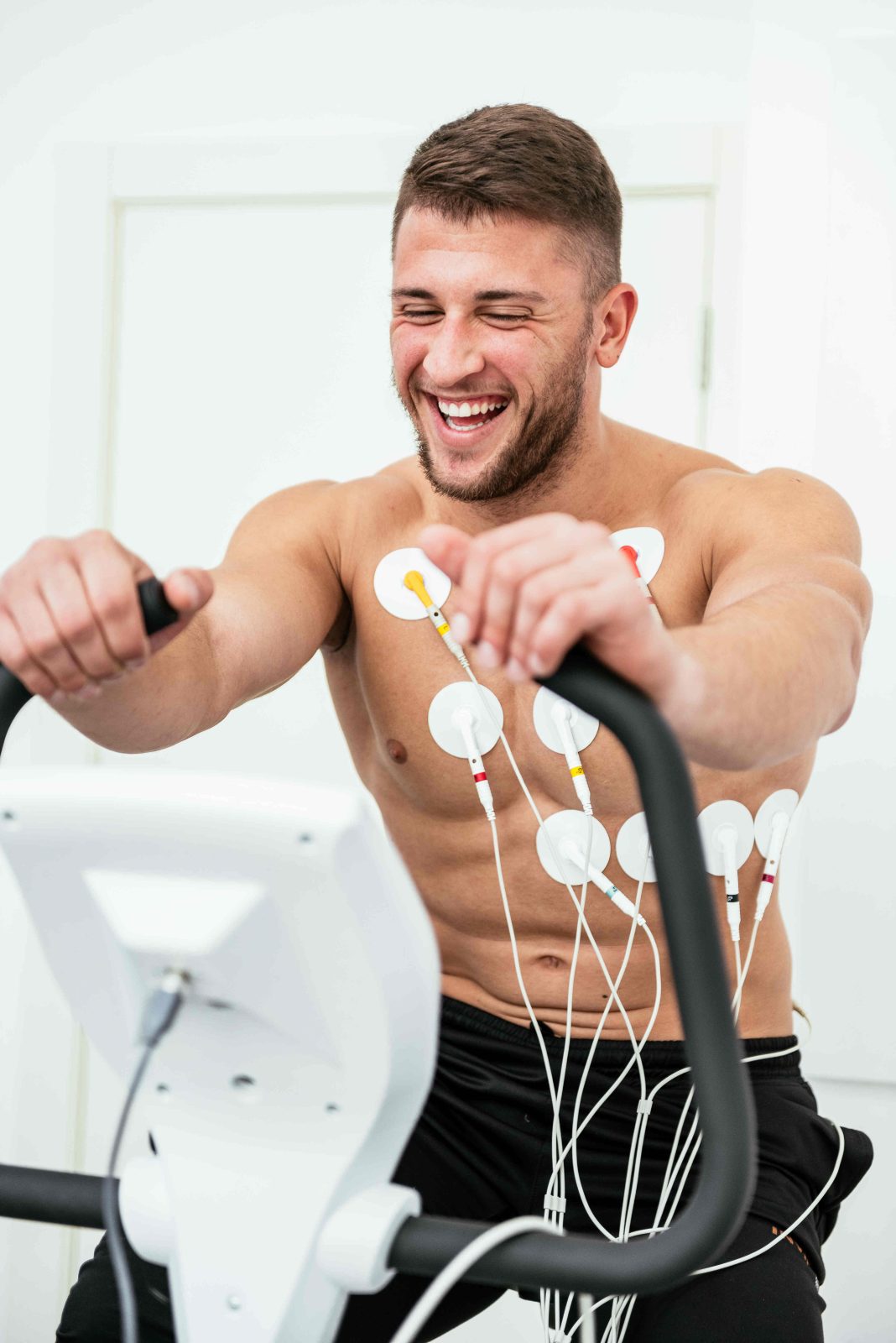 Photo Credit: Shutterstock
Photo Credit: Shutterstock
You just caught the news that your distant cousin had a heart attack. Thankfully, they are okay and on the mend, but that does not stop your mind from going a mile a minute. Are the odds in your favor or are you next to experience a life-threatening heart attack? With nervousness, you book an appointment with your local cardiologist...
Here's where Haute MD expert Dr. Ryan Houk of Naples Heart Rhythm Specialist falls into the picture to share what's next, a stress test. To learn about what a stress test entails and if any preparation is needed, Haute Beauty expert and wife Dr. Deborah Houk provides everything you need to know, essentially your guide to stress less.
What is a stress test?
A stress test is where you'd either be put on a treadmill or given medicine that allows your cardiologist to assess your blood flow and determine if there are blockages in the coronary arteries of your heart.
When is a stress test needed?
A stress test is needed for anyone with concerning symptoms that might be cardiovascular in nature, whether it be chest pain, shortness of breath, increased fatigue, or other cardiac symptoms. For these patients, they should talk to their doctor as soon as possible because, likely, a stress test is indicated.
For someone who is not having symptoms but wants to be preventative and is interested in assessing their risk for a heart attack, there is a test we offer called a calcium score. The calcium score is a CT scan that quantifies the amount of cholesterol that has formed plaque in your coronary arteries. If your calcium score is elevated, your doctor may recommend stress testing, as well as initiate medicines to reduce your cholesterol.
How do you prepare for a stress test?
The biggest thing to remember is if it's a pharmacologic test, you shouldn't have caffeine for 24 hours before the test. If it's a treadmill test and you're on a beta blocker, generally, you're advised not to take your beta blocker on the morning of the test so that your results aren't compromised. When scheduling your stress test, our staff will review everything you need to prepare for the procedure and answer any questions you may have.
 Photo Credit: Shutterstock
Photo Credit: Shutterstock
What happens in a stress test?
There are a lot of different types of stress tests out there, and each has its own protocols. Generally, there are two main types of stress that we use; either (1) treadmill exercise stress or (2) pharmacological stress using medicines to augment blood flow to the heart. We can either do an EKG treadmill test alone, or we can combine different stress modalities with varying types of imaging, which can include nuclear imaging or using ultrasound of the heart. These different imaging modalities look at either the blood flow to the heart with stress or look at the heart as it moves and contracts to assess for blockages in the arteries.
For an idea of what happens in a stress test, with the exercise stress tests, the patient is put on a treadmill and hooked up to an EKG machine while they exercise. The cardiologist then reviews the EKG images to see how the heart reacts to the exercise. Cardiologists often increase the sensitivity of this test by also doing an echocardiogram (or ultrasound of your heart) to see how the walls of the heart are moving in response to stress.
In our Naples office, in addition to standard stress tests, we also offer Cardiac PET, a more advanced type of stress test. Cardiac PET is the most accurate non-invasive nuclear stress test of the heart. It provides extremely high-quality images with only a fraction of the radiation exposure that traditional nuclear stress tests would incur. The test is quick and easy to complete in roughly 30 minutes, unlike other standard nuclear stress testing protocols, which can take up to 3 hours. Prognostically, someone with a normal cardiac pet has a less than 1% cardiac event rate per year, meaning a less than 1% risk of having a heart attack.
What does failing a stress test mean for you?
If you fail a stress test, the most common next step is to get a cardiac catheterization, which is an invasive procedure where the cardiologist directly images the coronary arteries for blockages. However, there are certain select situations where your cardiologist may recommend more conservative management. Typically, this is done for someone who is at higher risk for invasive procedures or who is either minimally symptomatic or has low-risk findings on stress testing.
The bottom line is that you need to talk to your cardiologist about what your stress test results mean for you, as the results will be used to help your doctor manage your treatment. If you are interested in learning more information about Cardiac PET stress tests, calcium scores, or stress tests in general, book an appointment today at Naples Heart Rhythm Specialists.






















